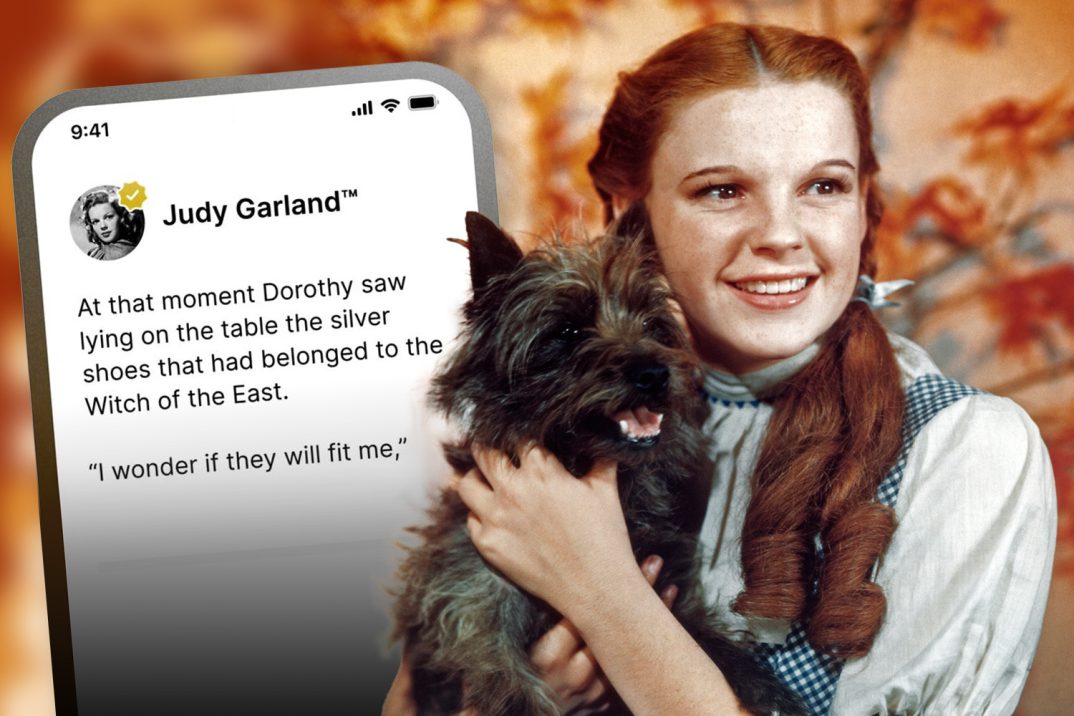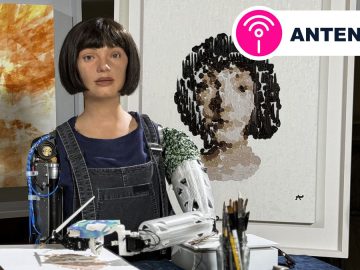THE families of late actors Judy Garland, Sir Laurence Olivier, James Dean and Burt Reynolds have agreed for their voices to be used to narrate audiobooks.
London-based tech company ElevenLabs has developed an AI tool that can recreate these actors’ voices with incredible accuracy.
3
The company uses AI to clone the voices of late actorsCredit: ElevenLabs
3
Actress Liza Minnelli, representing the Gardland Estate, said the agreement means her mother’s voice can be heard by new fansCredit: @elevenlabsio / Youtube
3
Among the numerous arguments against AI, some say we should let the dead restCredit: @elevenlabsio / Youtube
Actress Liza Minnelli, representing the Gardland Estate, said the agreement means her mother’s voice can be heard by new fans.
“It’s exciting to see our mother’s voice available to the countless millions of people who love her,” said Minnelli.
“Our family believes that this will bring new fans to Mama, and be exciting to those who already cherish the unparalleled legacy that Mama gave and continues to give the world.”
Garland will be able to narrate The Wizard of Oz book to a whole new generation of children inside ElevenLabs’ Reader App.
Dustin Blank, head of partnerships at ElevenLabs, said: “Judy Garland, James Dean, Burt Reynolds and Sir Laurence Olivier are some of the most celebrated actors in history.
“We deeply respect their legacy and are honoured to have their voices as part of our platform.
“Adding them to our growing list of narrators marks a major step forward in our mission of making content accessible in any language and voice.”
It’s not the first time AI has been used to ‘revive’ late famous figures.
AI-generated images last year revealed what Elvis Presley, Princess Diana and Freddie Mercury would look like in 2023, had they not died.
Hannah Verdier speaks to an AI generated bot to ‘talk to her dead dad’
Amazon also gave its Alexa gadgets a way to chat with dead – and living – celebrities and historical figures using AI at the beginning of the year.
The AI argument also triggered a 118-day strike by Hollywood actors amid fears studios could replace them with the technology.
Among the numerous arguments against AI, some say we should let the dead rest.
What are the arguments against AI?
Artificial intelligence is a highly contested issue, and it seems everyone has a stance on it. Here are some common arguments against it:
Loss of jobs – Some industry experts argue that AI will create new niches in the job market, and as some roles are eliminated, others will appear. However, many artists and writers insist the argument is ethical, as generative AI tools are being trained on their work and wouldn’t function otherwise.
Ethics – When AI is trained on a dataset, much of the content is taken from the Internet. This is almost always, if not exclusively, done without notifying the people whose work is being taken.
Privacy – Content from personal social media accounts may be fed to language models to train them. Concerns have cropped up as Meta unveils its AI assistants across platforms like Facebook and Instagram. There have been legal challenges to this: in 2016, legislation was created to protect personal data in the EU, and similar laws are in the works in the United States.
Misinformation – As AI tools pulls information from the Internet, they may take things out of context or suffer hallucinations that produce nonsensical answers. Tools like Copilot on Bing and Google’s generative AI in search are always at risk of getting things wrong. Some critics argue this could have lethal effects – such as AI prescribing the wrong health information.
In response to the announcement from ElevenLabs, marketing consultant Corinne Streichert said companies should “let the departed rest in peace and make money off the body of work they left behind” in a post on LinkedIn.
She added: “Besides their loyal fans usually die with them and new stars emerge with new fans.
“That’s why we have generations.”
Judy Garland was exploited in life, and she continues to be exploited in death.
In another comment, sound designer, Dallas Taylor, nodded to claims that Garland was heavily exploited during her acting career that spanned more than 40 years.
In her partially-written memoir, Get Happy: The Life of Judy Garland, Garland claimed she was sexually harassed by Louis B. Mayer, co-founder of MGM studios.
It has also been widely reported that Garland, at just 16 years old, was groped by munchkins, drugged and put on a strict prisoner-style diet while on the set of 1939 technicolour classic The Wizard of Oz.
“I love this technology and find it fascinating, but claiming it’s done “in the most authentic way possible” is wildly arrogant,” Taylor wrote.
“What’s troubling is that with enough money thrown at the kids of these people, their voice can be robbed from the grave for profit.
“Judy Garland was exploited in life, and she continues to be exploited in death.”
Read more about Artificial Intelligence
Everything you need to know about the latest developments in Artificial Intelligence





